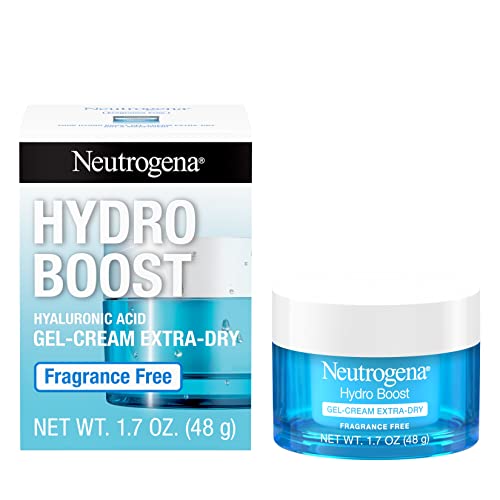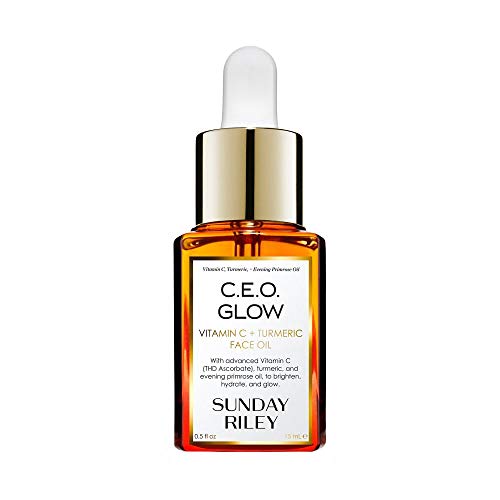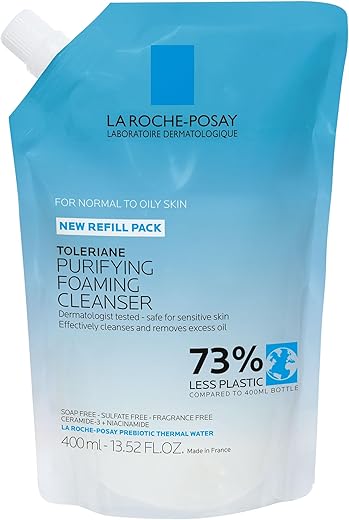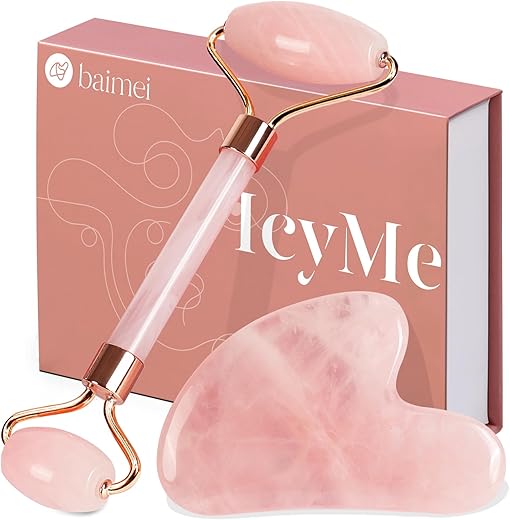
Face Oil vs. Moisturizer
Taking care of our skin is important for both our physical and mental well-being. However, with so many different skincare products on the market, it can be overwhelming to navigate through the options and find the right one for our specific needs. Two popular products that often cause confusion are face oil and moisturizer. While both aim to hydrate and nourish our skin, they have distinct differences that can significantly impact the effectiveness of our skincare routine. In this blog post, we will break down the differences between face oil and moisturizer, so you can make an informed decision and achieve the healthy, glowing skin you deserve.
Top-selling Face Oils for Nourished and Glowing Skin






What is Face Oil?
Face oil has become a popular addition to skincare routines in recent years. Many people are curious about this product and how it differs from traditional moisturizers. In this blog section, we will dive into the world of face oil, exploring its benefits and how it can nourish and hydrate your skin.


Understanding the Difference
Moisturizers vs. Face Oil
While both moisturizers and face oils aim to hydrate the skin, they have different compositions and functions. Here are some key differences between the two:
Moisturizers
- Typically water-based or contain a mix of water and oil
- Designed to create a barrier on the skin’s surface to prevent moisture loss
- May contain additional ingredients such as humectants, emollients, and occlusives
- Suitable for most skin types, including dry, normal, and combination skin
Face Oils
- Consist mainly of oils derived from plants, nuts, and seeds
- Penetrate deeply into the skin, providing nourishment and hydration
- Often contain essential fatty acids, vitamins, and antioxidants
- Ideal for dry, dehydrated, and mature skin types
The Benefits of Using Face Oil
Using face oil in your skincare routine can offer numerous benefits. Here are some key advantages to consider:
1. Deep Hydration
Face oils are highly effective at moisturizing the skin due to their ability to penetrate deeply. They provide a surge of hydration that can help combat dryness and flakiness.
2. Nourishment
The natural oils found in face oil are rich in essential fatty acids, vitamins, and antioxidants. These nutrients help nourish and revitalize the skin, promoting a healthy complexion.
3. Skin Barrier Support
Face oils assist in strengthening the skin’s natural barrier, which is responsible for protecting against external aggressors. This can help prevent moisture loss and maintain a more balanced complexion.
4. Anti-Aging Properties
Many face oils contain antioxidants, such as vitamin E and C, that help fight free radicals and reduce the signs of aging. Regular use may help diminish the appearance of fine lines and wrinkles.
5. Customizable Skincare
Face oils can be easily incorporated into your existing skincare routine. They can be used alone, mixed with your moisturizer, or applied after moisturizer for an added boost of hydration.
Choosing the Right Face Oil
When selecting a face oil, it’s essential to consider your skin type and specific concerns. Here are some tips to help you choose the right one:
- Dry Skin: Look for nourishing oils like argan, avocado, or rosehip oil.
- Oily Skin: Opt for lighter oils such as jojoba or grapeseed oil that won’t clog pores.
- Sensitive Skin: Choose gentle oils such as chamomile or calendula to minimize irritation.
- Acne-Prone Skin: Seek out non-comedogenic oils like tea tree or hemp seed oil to avoid pore congestion.
What is Moisturizer?
Moisturizer is a vital component of any skincare routine, providing much-needed hydration and nourishment to the skin. Whether you have dry, oily, or combination skin, finding the right moisturizer can be a game-changer in achieving a healthy and radiant complexion. In this article, we will delve into the world of moisturizers, exploring their definition, benefits, and various types available.



Definition and Role
Moisturizer is a skincare product designed to replenish and retain moisture in the skin. It acts as a barrier, preventing water loss and maintaining hydration levels. Our skin naturally produces oils that help keep it moisturized, but factors like harsh weather conditions, age, and excessive cleansing can disrupt this process, leading to dryness, flakiness, and even premature aging. Moisturizers step in to provide additional hydration and nourishment, keeping the skin supple, smooth, and youthful.
Benefits of Moisturizers
Locking in Moisture
One of the primary benefits of moisturizers is their ability to lock in moisture. By forming a protective layer on the skin’s surface, moisturizers prevent water from evaporating, keeping the skin hydrated throughout the day. This is particularly beneficial for individuals with dry or dehydrated skin, as it helps combat tightness and discomfort.
Improving Skin Texture
Regular use of moisturizers can significantly improve the texture of the skin. Dry and flaky patches often give the skin a rough appearance, but moisturizers work to soften and smoothen these areas, resulting in a more even and refined complexion. Additionally, moisturizers can minimize the appearance of fine lines and wrinkles, making the skin look plumper and more youthful.
Enhancing Skin Barrier Function
The skin’s barrier function refers to its ability to protect against external aggressors like pollution and bacteria. Moisturizers play a crucial role in strengthening this barrier, providing a shield against environmental stressors. This can help reduce the risk of skin infections, irritation, and inflammation, ultimately promoting healthier and more resilient skin.
Types of Moisturizers
Moisturizers come in various forms and formulations, catering to different skin types and concerns. Here are some common types of moisturizers:
- Creams: Cream moisturizers are thicker in consistency and provide intense hydration. They are suitable for individuals with dry or mature skin and can be used both day and night.
- Lotions: Lotions have a lighter texture and are suitable for individuals with normal to combination skin. They absorb quickly and provide adequate hydration without leaving a greasy residue.
- Gels: Gel moisturizers have a lightweight and non-greasy formula, making them ideal for those with oily or acne-prone skin. They provide hydration without clogging pores and are often preferred during hot and humid climates.
- Serums: Serums are highly concentrated products that target specific skin concerns. While not technically moisturizers on their own, they can be used in combination with a moisturizer to boost hydration and address specific issues like dullness or hyperpigmentation.
Key Differences
When it comes to skincare, finding the right products for your skin type and concerns is crucial. Among the many options available, face oil and moisturizer are two popular choices. Although both aim to hydrate the skin, they have distinct characteristics that set them apart. In this article, we will delve into the key differences between face oil and moisturizer, helping you make an informed decision about which product is best suited for your skin.


Texture
One of the most noticeable differences between face oil and moisturizer lies in their texture. Understanding this distinction can help you determine which product will work best for your skin’s needs.
Face Oil:
- Typically has a lightweight and non-greasy texture.
- Often formulated with natural oils such as jojoba, argan, or rosehip.
- Spreads easily on the skin and leaves a smooth, silky finish.
- Suitable for all skin types, including oily and acne-prone skin.
Moisturizer:
- Comes in various forms, including creams, lotions, and gels.
- Generally has a thicker consistency compared to face oil.
- Absorbs into the skin relatively quickly, leaving a soft and moisturized feel.
- Available in different formulations for specific skin types, such as dry, oily, or combination skin.
Absorption Rate
The speed at which a skincare product is absorbed by the skin can influence its effectiveness and how it feels on your face throughout the day. Face oil and moisturizer differ in terms of their absorption rates.
Face Oil:
- Absorbs slowly into the skin due to its molecular structure.
- Forms a protective barrier on the skin’s surface, preventing moisture loss.
- Provides long-lasting hydration and nourishment.
- Ideal for individuals with dry or dehydrated skin.
Moisturizer:
- Absorbs relatively quickly into the skin.
- Penetrates deeper layers of the skin, delivering hydration and nutrients.
- Can be formulated with additional ingredients to target specific skin concerns, such as acne, aging, or hyperpigmentation.
- Suitable for a wide range of skin types, depending on the formulation.
Suitability for Different Skin Types
Understanding your skin type is essential for selecting the right skincare products. Face oil and moisturizer cater to different skin types, ensuring that everyone can find a suitable option.
Face Oil:
- Works well for dry, dehydrated, or mature skin.
- Provides intense hydration and helps replenish the skin’s natural oils.
- Can be used sparingly on oily or acne-prone skin as a targeted treatment.
- Some face oils are specifically formulated for sensitive skin, minimizing the risk of irritation.
Moisturizer:
- Available in formulations tailored to different skin types.
- Lightweight, oil-free moisturizers are suitable for oily or acne-prone skin.
- Richer, cream-based moisturizers are ideal for dry or mature skin.
- Combination skin can benefit from moisturizers that balance hydration levels in different areas of the face.
Choosing the Right Product
When it comes to skincare, choosing the right product for your skin type can make a world of difference. Face oils and moisturizers are two popular options that offer unique benefits and cater to different needs. In this blog section, we will explore the factors to consider when deciding between face oil and moisturizer, including skin type, climate, and personal preferences. By the end of this article, you’ll be equipped with the knowledge to make an informed decision that best suits your skin.



Skin Type
Understanding your skin type is crucial in selecting the appropriate skincare product. Here’s how face oils and moisturizers cater to different skin types:
Face Oil
- Ideal for dry or dehydrated skin types
- Provides intense hydration and nourishment
- Suitable for mature skin to combat signs of aging
- Helps balance oil production in oily or combination skin types
- Offers a protective barrier for sensitive skin
Moisturizer
- Suitable for all skin types
- Provides hydration and locks in moisture
- Lightweight formulas are perfect for oily or acne-prone skin
- Non-comedogenic options prevent clogged pores
- Anti-inflammatory properties soothe sensitive skin
Climate
Climate plays a significant role in determining the most suitable product for your skincare routine. Consider the following when choosing between face oil and moisturizer:
Face Oil
- Ideal for dry or cold climates as it provides an extra layer of protection and prevents moisture loss
- Heavier oils may be too greasy for hot or humid climates
Moisturizer
- Lightweight formulas are great for hot and humid climates as they offer hydration without feeling heavy or greasy
- Moisturizers with SPF are essential in sunny climates to protect against harmful UV rays
Personal Preferences
Personal preferences are vital in selecting a skincare product that you’ll enjoy using regularly. Here are some factors to consider:
Face Oil
- Luxurious and indulgent texture
- Natural and organic options available
- Can be used alone or mixed with other skincare products
Moisturizer
- Wide range of textures, from lightweight gels to rich creams
- Can be easily incorporated into existing skincare routines
- Available in various formulations for specific concerns (e.g., anti-aging, acne-fighting)
Comparison Table
To help you better visualize the differences between face oils and moisturizers, here’s a comparison table:
| Face Oil | Moisturizer | |
|---|---|---|
| Skin Type | Dry, dehydrated, mature, oily, combination, sensitive | All |
| Climate | Dry or cold climates | Hot or humid climates |
| Personal | Luxurious texture, natural options, mixing flexibility | Various textures, easy integration, specialized formulations |
| Preferences | ||
| Benefits | Intense hydration, anti-aging, oil balancing, protective | Hydration, lightweight, non-comedogenic, anti-inflammatory |
| barrier | properties | |
| Key Points | Provides nourishment, ideal for dry skin | Suitable for all skin types, locks in moisture |
| Offers protection, balances oil production | Lightweight options for oily or acne-prone skin |
Remember, these are general guidelines, and individual results may vary. It’s essential to experiment and listen to your skin’s needs to find the perfect product.
In conclusion, choosing between face oil and moisturizer depends on several factors, including your skin type, climate, and personal preferences. Face oils provide intense hydration and nourishment, making them suitable for dry or mature skin types, while moisturizers cater to all skin types and offer lightweight hydration. Evaluate your skin’s needs and the climate you live in, and consider your personal preferences to make an informed decision. Whichever product you choose, consistency and regular use are key to achieving healthy and radiant skin.
Choosing the Best Skincare Option for Your Needs
In conclusion, the choice between face oil and moisturizer ultimately comes down to personal preference and individual skincare needs. It’s important to consider factors like skin type, climate, and desired benefits when making this decision. Whether you opt for the nourishing properties of face oil or the hydration of a moisturizer, both can play a vital role in achieving healthy and radiant skin.

Hey, I’m Ava Wilson—a skincare enthusiast and a certified esthetician. I’m dedicated to sharing my knowledge and empowering others to achieve healthy, glowing skin through simple, effective routines and natural remedies. Join me on this exciting skincare journey, and let’s unlock your skin’s potential for a confident, beautiful you.





